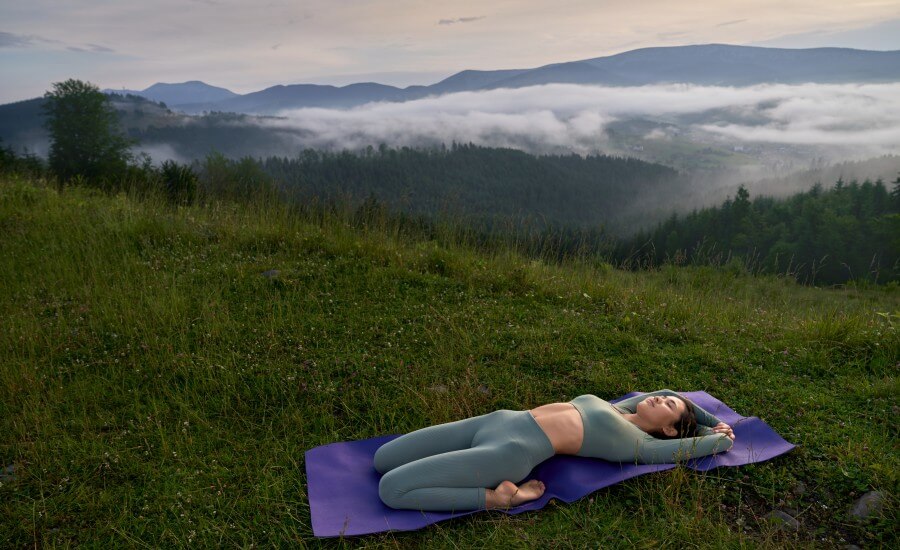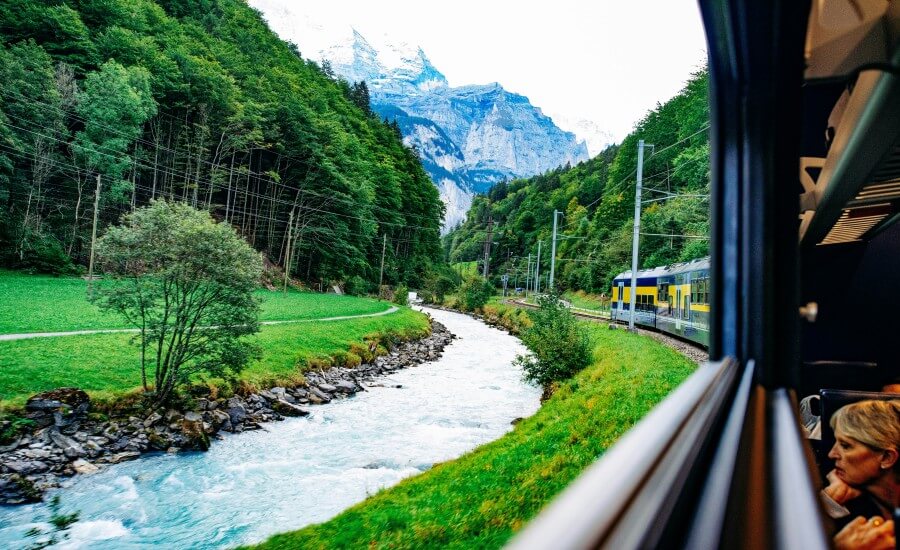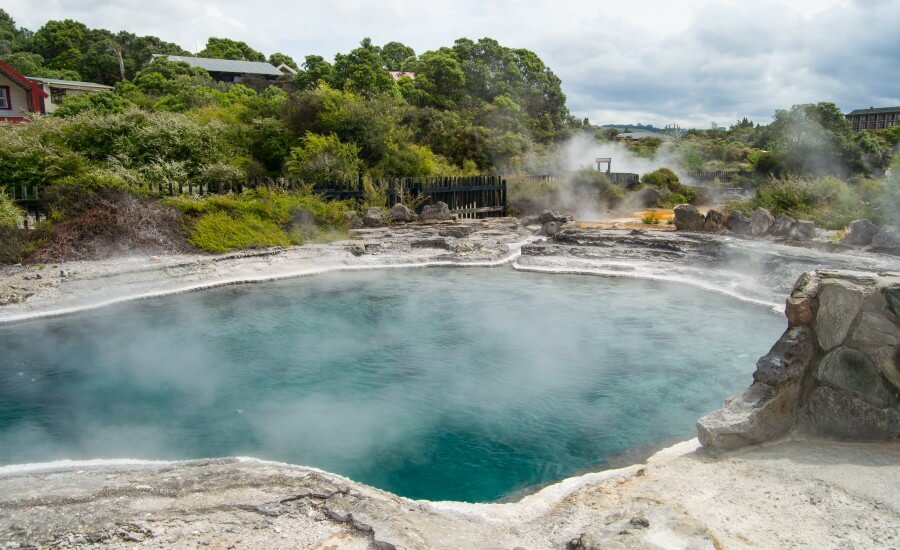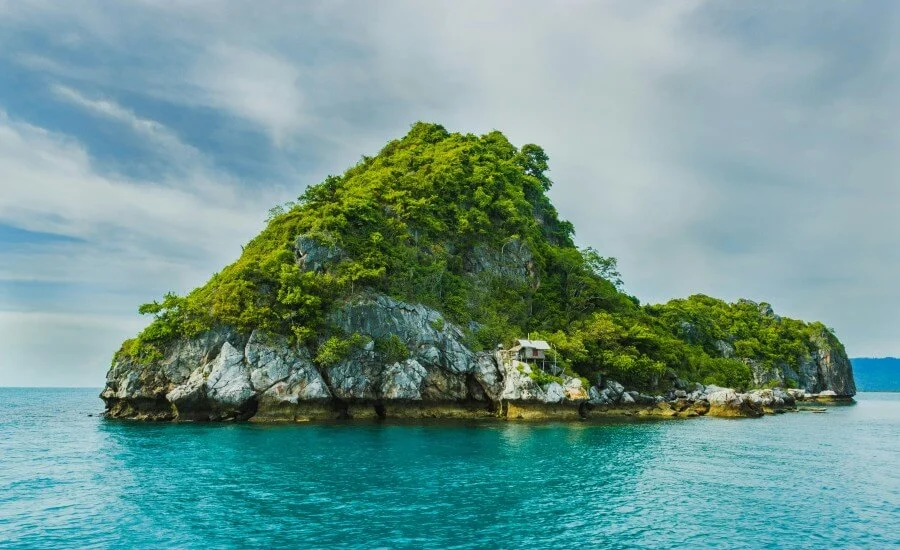Imagine greeting the dawn with Sun Salutations, the cool, crisp mountain air filling your lungs, your gaze resting on mist-wreathed peaks that stand like ancient sentinels. Picture days unfolding with the gentle rhythm of practice, nourishing food, quiet reflection, and the grounding presence of towering landscapes, far removed from the clamor and demands of daily life. This isn't just a yoga class; it's an immersion – a deep dive into practice and self, amplified by the unique energy of a secluded mountain village.
While yoga can be practiced anywhere, there's a special kind of magic that happens when the inner journey of yoga meets the profound stillness and raw beauty of the mountains. These retreats offer more than just physical benefits; they create a powerful container for healing, insight, and reconnection. This guide explores the world of Transformative Yoga Retreats in Secluded Mountain Villages, delving into why these settings are so potent, what such an experience might entail, and how they can catalyze deep personal growth and a return to inner peace.
The Upward Ascent: Why Mountains Amplify the Yoga Journey

What is it about practicing yoga amidst mountains, tucked away in quiet villages, that fosters such profound shifts? The synergy between the practice and the environment creates a uniquely potent atmosphere for transformation.
-
Ancient Energy & Grounding: Mountains possess an ancient, grounding energy. Their sheer scale and geological age inspire awe and humility, putting our own lives and concerns into perspective. This natural grandeur encourages a letting go of the small stuff and an opening to something larger than oneself. Practicing yoga, especially grounding poses, feels incredibly powerful on this stable earth.
-
Natural Beauty & Presence: The breathtaking beauty of mountain landscapes – the dramatic peaks, deep valleys, clear streams, vast skies – naturally draws us into the present moment. It’s hard to stay lost in mental chatter when surrounded by such immediate and overwhelming beauty. This heightened presence deepens the meditative aspects of yoga.
-
Silence & Reduced Distraction: Secluded mountain villages offer a precious commodity: quiet. The reduced sensory input – less traffic noise, fewer digital pings, minimal social chatter – allows the mind to settle more easily, making meditation and mindful movement more accessible and profound. You can finally hear the subtle sounds of nature and your own inner landscape.
-
Prana & Purity: The air in high-altitude mountain regions is often thinner but also cleaner and charged with prana (life force energy). Conscious breathing exercises (pranayama) feel particularly potent, revitalizing the body and clarifying the mind.
-
Detachment & Perspective: Being physically removed from the routines, responsibilities, and relationships of daily life creates valuable detachment. This distance allows for fresh perspectives on life patterns, challenges, and aspirations. You can see the "forest" of your life instead of just the "trees."
-
Connection to Nature's Rhythms: Living closer to the natural cycles of sunrise, sunset, weather patterns, and seasons encourages a realignment with our own internal rhythms, often disrupted by modern lifestyles.
The mountain environment acts as both a supportive container and a powerful amplifier for the inner work undertaken during a yoga retreat. It encourages us to rise to meet its majesty, both externally and internally. Have you ever felt a sense of clarity or peace when spending time in the mountains?
Beyond the Mat: What to Expect from a Mountain Village Retreat

While each retreat center has its unique flavour, yoga retreats set in secluded mountain villages often share common elements focused on holistic well-being and deep immersion, going far beyond standard studio classes.
-
Daily Structured Practice: Expect a consistent daily schedule, usually starting early. This often includes:
- Asana: Physical yoga postures, often practiced twice daily (morning and late afternoon/evening), style varying by retreat (Hatha, Vinyasa, Yin, etc.).
- Pranayama: Breathwork techniques to regulate energy and calm the mind.
- Meditation: Guided and silent sessions to cultivate awareness and stillness.
-
Holistic Focus: Many retreats incorporate elements beyond physical postures, such as:
- Yoga Philosophy/Dharma Talks: Discussions on yogic texts, ethics, and principles for mindful living.
- Ayurveda: Some retreats integrate principles of Ayurveda (traditional Indian medicine) through diet or consultations.
- Chanting/Kirtan: Devotional singing or mantra repetition can be part of the practice.
-
Nourishing Food: Meals are typically vegetarian (often vegan-friendly), wholesome, locally sourced where possible, and designed to support the practice and promote well-being. Eating is often done mindfully, sometimes in silence.
-
Periods of Silence (Mauna): Many retreats incorporate periods of intentional silence (ranging from evenings to several full days) to deepen introspection and minimize external distraction.
-
Connection with Nature: The schedule usually includes time for mindful walks or hikes in the surrounding mountains, allowing for direct connection with the powerful landscape.
-
Simple, Conscious Living: Accommodation is often simple, clean, and comfortable, encouraging detachment from material comforts and fostering appreciation for necessities. Shared rooms might be common.
-
Digital Detox: Expect limited or no Wi-Fi/phone signal, and often policies requiring devices to be turned off and put away for the duration of the retreat.
-
Community & Sangha: While often quiet, there's a sense of community (sangha) built through shared practice and intention, even in silence.
-
Respectful Cultural Integration (Potentially): Depending on the location and retreat philosophy, there might be opportunities for respectful interaction with the local village culture, perhaps through guided walks or supporting local artisans, always emphasizing ethical engagement.
These retreats offer a structured, supportive environment designed to strip away distractions and allow participants to dive fully into their practice and inner world, nurtured by the mountain setting.
Transformative Yoga Retreats in Secluded Mountain Villages: The Inner Shift
It is the unique combination of dedicated practice, supportive environment, and the potent mountain setting that makes Transformative Yoga Retreats in Secluded Mountain Villages such powerful catalysts for inner change. The seclusion and natural power work synergistically with yogic practices to facilitate deep shifts:
Deepening Practice Away from Distraction
Without the usual demands on time and attention, you can immerse yourself fully in yoga and meditation. Consistent daily practice, guided by experienced teachers, allows for significant progress in physical postures, breath awareness, and meditative stability. The quiet environment helps sustain focus far more easily than a busy home life or city studio.
Nature as a Mirror: Insights from the Landscape
The vastness, resilience, and ancient stillness of the mountains serve as powerful mirrors for our own inner landscape. Observing the unchanging nature of the peaks amidst fleeting weather patterns can teach about equanimity. Witnessing the raw beauty can crack open feelings of awe and gratitude. The challenges of the terrain might reflect inner struggles, offering opportunities to practice acceptance and perseverance. Nature becomes an active participant in the process of self-discovery.
Cultivating Resilience (Physical and Mental)
Navigating the physical demands of daily practice, potentially including hikes at altitude, builds physical strength and stamina. More importantly, sitting with the mental and emotional challenges that arise in stillness – restlessness, difficult thoughts, discomfort – cultivates profound mental and emotional resilience. You learn to stay present and grounded even when things are difficult.
Reconnecting with Inner Stillness & Intuition
As the outer noise and inner chatter subside, a deeper layer of awareness emerges. In the profound quiet facilitated by the retreat setting, you create space to hear your own inner voice – the subtle whispers of intuition, core values, and authentic desires. This reconnection with inner stillness is often one of the most profound transformations, offering guidance long after the retreat ends.
The transformative power lies not just in doing yoga in the mountains, but in allowing the mountains and the stillness to permeate the practice, leading to insights and shifts that might not occur elsewhere. What inner quality do you feel most drawn to cultivating through such an experience?
The Fruits of Stillness: Tangible & Intangible Benefits

Participating in a secluded mountain yoga retreat offers a harvest of benefits, some immediately noticeable, others unfolding subtly over time. These fruits nourish body, mind, and spirit.
Physical Benefits:
-
Increased Flexibility & Strength: Consistent, focused Asana practice deepens physical openness and builds strength.
-
Improved Respiratory Function: Dedicated pranayama practice in clean mountain air can enhance lung capacity and efficiency.
-
Deep Rest & Rejuvenation: Disconnecting from stress and aligning with natural rhythms allows the nervous system to deeply rest and repair.
-
Potential Detoxification: Healthy, simple food and mindful eating support the body's natural detoxification processes.
Mental & Emotional Benefits:
-
Significant Stress Reduction: Removing daily stressors and engaging in calming practices dramatically lowers cortisol levels and promotes relaxation.
-
Enhanced Mental Clarity & Focus: Quieting the mental chatter improves concentration and decision-making abilities.
-
Emotional Release & Balance: The safe space allows suppressed emotions to surface and be processed, leading to greater emotional equilibrium.
-
Increased Self-Awareness: Gaining insight into thought patterns, triggers, and habitual reactions empowers conscious choice.
-
Boosted Resilience: Learning to navigate discomfort (physical or mental) with mindful awareness builds inner fortitude.
Spiritual & Existential Benefits:
-
Deepened Spiritual Connection: For those seeking it, the environment and practice can foster a stronger connection to one's own spiritual path, nature, or a sense of the transcendent.
-
Renewed Sense of Purpose & Perspective: Stepping away often brings clarity on life priorities and what truly brings meaning.
-
Heightened Intuition: Quieting the rational mind allows intuitive insights to emerge more clearly.
-
Profound Gratitude & Appreciation: The experience often cultivates deep gratitude for simple things, nature's beauty, and the present moment.
While individual experiences vary, participants often leave feeling lighter, clearer, more grounded, and equipped with tools and insights to navigate life with greater presence and peace. These retreats offer not just a temporary escape, but the potential for lasting positive change.
Choosing Your Mountain Sanctuary: Finding the Right Retreat

With a growing number of mountain yoga retreats available globally (from the Himalayas in India and Nepal to the Andes, Alps, and Rockies), choosing the one that aligns with your needs and intentions is crucial for a positive experience. Here’s what to consider:
-
Define Your Intention: What are you primarily seeking? Deep physical practice, meditation focus, spiritual exploration, healing, digital detox, cultural immersion? Knowing your "why" helps filter options.
-
Yoga Style & Teacher: Research the style of yoga taught (Ashtanga, Iyengar, Hatha, Vinyasa, Yin, Restorative, etc.) and, importantly, the lead teacher(s). Read their bios, understand their lineage and teaching philosophy. Do they resonate with you?
-
Intensity & Level: Be honest about your yoga experience and physical fitness. Choose a retreat appropriate for your level – beginner, intermediate, advanced. Check if hiking or significant physical activity outside yoga is involved.
-
Location & Altitude: Consider the specific mountain range and country. Research travel logistics. Crucially, check the altitude of the retreat center. If it's significantly high (e.g., above 2500-3000m / 8000-10000ft), ensure the program allows for proper acclimatization, especially if you are arriving directly from sea level.
-
Duration & Dates: Retreats range from weekends to several weeks or even months. Choose a duration that feels feasible and beneficial for you. Check if the dates align with favorable weather conditions for the region.
-
Philosophy & Rules: Understand the retreat's core philosophy. Are there strict rules regarding silence (Mauna), diet, schedules, or interaction? Ensure you are comfortable committing to them.
-
Group Size & Accommodation: Do you prefer an intimate group or a larger community? Check accommodation options (private vs. shared rooms, type of facilities – rustic or more comfortable).
-
Reviews & Testimonials: Read reviews from past participants to get a sense of their experiences. Look for feedback on the teaching, food, accommodation, atmosphere, and overall organization.
-
Ethical Considerations: If the retreat involves interaction with a local village, inquire about the organization's relationship with the community. Do they contribute fairly? Is engagement respectful and non-exploitative?
-
Cost & Inclusions: Understand what the price includes (accommodation, meals, classes, excursions?) and what is extra (travel, insurance, personal expenses).
Taking the time to research thoroughly ensures you find a mountain sanctuary that truly supports your journey inward. What factor is non-negotiable for you in choosing a retreat?
Preparing for Altitude & Attitude: Body & Mind

Preparing for a yoga retreat in a secluded mountain village involves readying both your physical body and your mental attitude for the unique environment and experience.
Physical Preparation:
- Maintain Fitness: While you don't need to be an elite athlete, having a reasonable level of fitness will help you enjoy daily yoga and any potential walks or hikes more comfortably. Regular walking, hiking, or your usual yoga practice is good preparation.
- Altitude Awareness: If the retreat is at high altitude (above 2500m/8000ft), research altitude sickness (AMS). Plan travel to allow gradual ascent if possible. Stay well-hydrated before and during the retreat. Avoid alcohol and smoking. Communicate any concerns to the retreat organizers. Listen to your body.
- Consult Your Doctor: Discuss your travel plans and retreat activities with your doctor, especially if you have pre-existing health conditions. Ensure vaccinations are up to date.
Packing Essentials:
- Layers: Mountain weather changes rapidly. Pack layers (base, mid, outer waterproof/windproof). Include warm socks, hat, gloves.
- Comfortable Yoga Wear: Bring enough for daily practice (laundry facilities may be limited).
- Walking/Hiking Shoes: Essential if nature walks are included.
- Sun Protection: High altitude sun is strong – bring sunscreen, sunglasses, hat.
- Reusable Water Bottle.
- Personal Medications & Basic First-Aid.
- Journal & Pen: For reflections (if permitted/desired).
- Headlamp/Flashlight: Useful for navigating in the evenings/early mornings.
- Shawl/Blanket: For warmth during meditation or Savasana.
- Respectful Attire: Include modest clothing options if visiting local villages or sacred sites.
Mental & Emotional Preparation:
- Openness & Curiosity: Approach the retreat with an open mind and heart, ready to learn and experience whatever arises without rigid expectations.
- Let Go of Expectations: Release preconceived notions about what the retreat "should" be like or what insights you "must" gain. Allow the experience to unfold naturally.
- Readiness for Simplicity: Be prepared for basic accommodation, simple food, and a lack of modern luxuries. Embrace the simplicity as part of the process.
- Digital Detox Mindset: Mentally prepare to be disconnected. Inform family/work you'll be unreachable (provide emergency contact for the center). See it as an opportunity, not a deprivation.
- Embrace Discomfort: Understand that challenges (physical, mental, emotional) may arise. View them not as failures, but as opportunities for growth and applying yogic principles like awareness and non-reactivity.
- Set an Intention (Loosely): While letting go of expectations, setting a gentle intention (e.g., "to cultivate peace," "to listen deeply") can provide a soft focus for your journey.
Thoughtful preparation allows you to arrive feeling grounded and ready to fully receive the gifts of the retreat experience.
Conclusion: Finding Your Center Amidst the Peaks

A transformative yoga retreat in a secluded mountain village is a unique alchemy – a fusion of ancient yogic practices, the profound energy of the mountains, and the deep quiet afforded by seclusion. It’s an invitation to step away from the relentless pace of modern life and embark on a journey inward, using the tools of yoga and the wisdom of nature as guides.
These retreats offer far more than physical flexibility or a temporary escape. They provide fertile ground for cultivating mental clarity, emotional resilience, and a reconnection with the quiet, intuitive voice within. The challenges encountered – the physical exertion, the silence, the surfacing emotions – become integral parts of the process, forging inner strength and deepening self-awareness. Surrounded by the timeless majesty of the mountains, participants often find a renewed sense of perspective, gratitude, and alignment with what truly matters.
If you seek not just a vacation but a meaningful pause, a chance to deepen your practice, and an opportunity to hear yourself think – and feel – more clearly, consider the potent combination of yoga, mountains, and stillness. Choose your sanctuary thoughtfully, prepare with intention, and arrive with an open heart. Amidst the peaks, you may just discover the profound peace and clarity of your own center.






